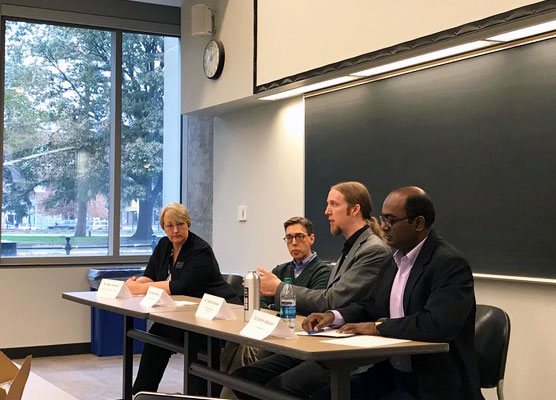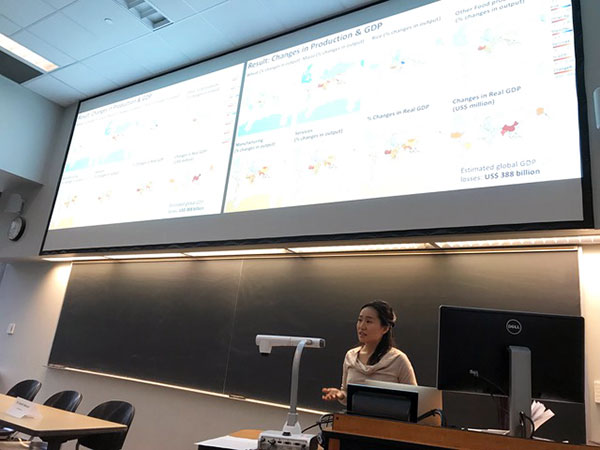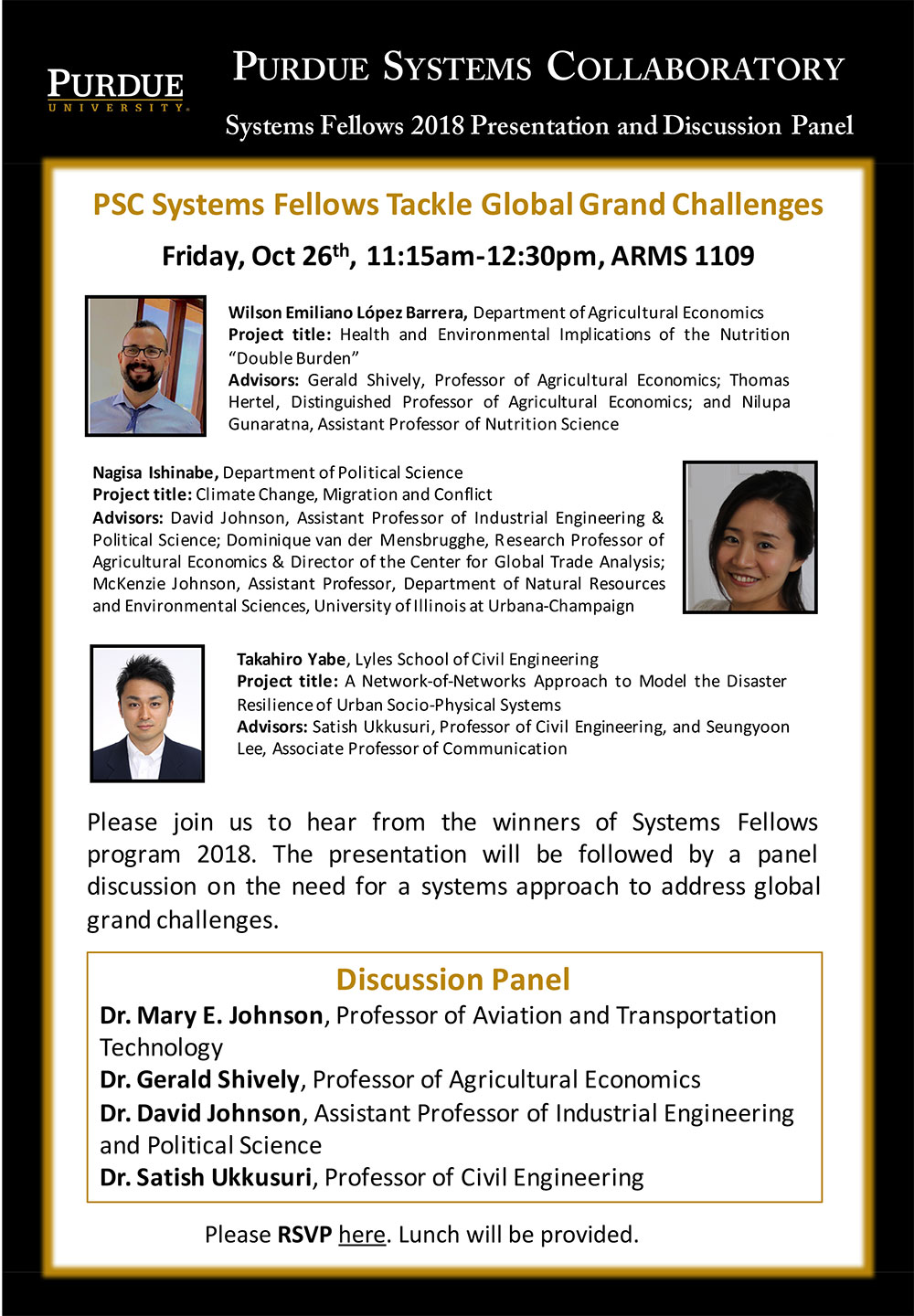PSC Systems Fellows selected from several colleges
speaks at the PSC Systems Fellows
panel discussion
At the Oct. 26 event, "PSC Systems Fellows Tackle Global Grand Challenges", PSC announced its three 2018 Systems Fellows, and held a discussion panel followed by a luncheon.
The newly-selected Systems Fellows are:
- Nagisa Ishinabe, PhD student in the Department of Political Science, advised by David Johnson, assistant professor of industrial engineering and political science, and others. Project title: "Climate Change, Migration and Conflict".
- Wilson Emiliano López Barrera, PhD student in the Department of Agricultural Economics, advised by Gerald Shively, Professor of Agricultural Economics, and others. Project title: "Health and Environmental Implications of the Nutrition 'Double Burden'".
- Takahiro Yabe, PhD student in Lyles School of Civil Engineering, advised by Satish Ukkusuri, Professor of Civil Engineering, and Seungyoon Lee, associate professor of communication. Project title: "A Network-of-Networks Approach to Model the Disaster Resilience of Urban Socio-Physical Systems".
Panelists included Dr. David Johnson, assistant professor of industrial engineering and political science; Dr. Mary E. Johnson, professor of aviation and transportation technology; Dr. Gerald Shively, professor of agricultural economics; and Dr. Satish Ukkusuri, professor of civil engineering.
About 40 people attended, including faculty members and graduate students from Purdue Colleges of Engineering, Agriculture, and Liberal Arts.
The Systems Fellows Program is meant to support graduate students who want to participate in the convergence of knowledge and expertise from diverse disciplines to identify and address a complex system problem. This approach requires that faculty and students explore research questions at the intersection of their respective fields, conduct joint research projects and develop methodologies that can be used to re-integrate knowledge in pursuit of a new science of systems. Examples include (but by no means are limited to): research projects in developing a technology that also investigate the effects, reception and implications of the technology on humans, society and social interactions. Or, studying the advancement of secure communication and investigating the policy implications.



